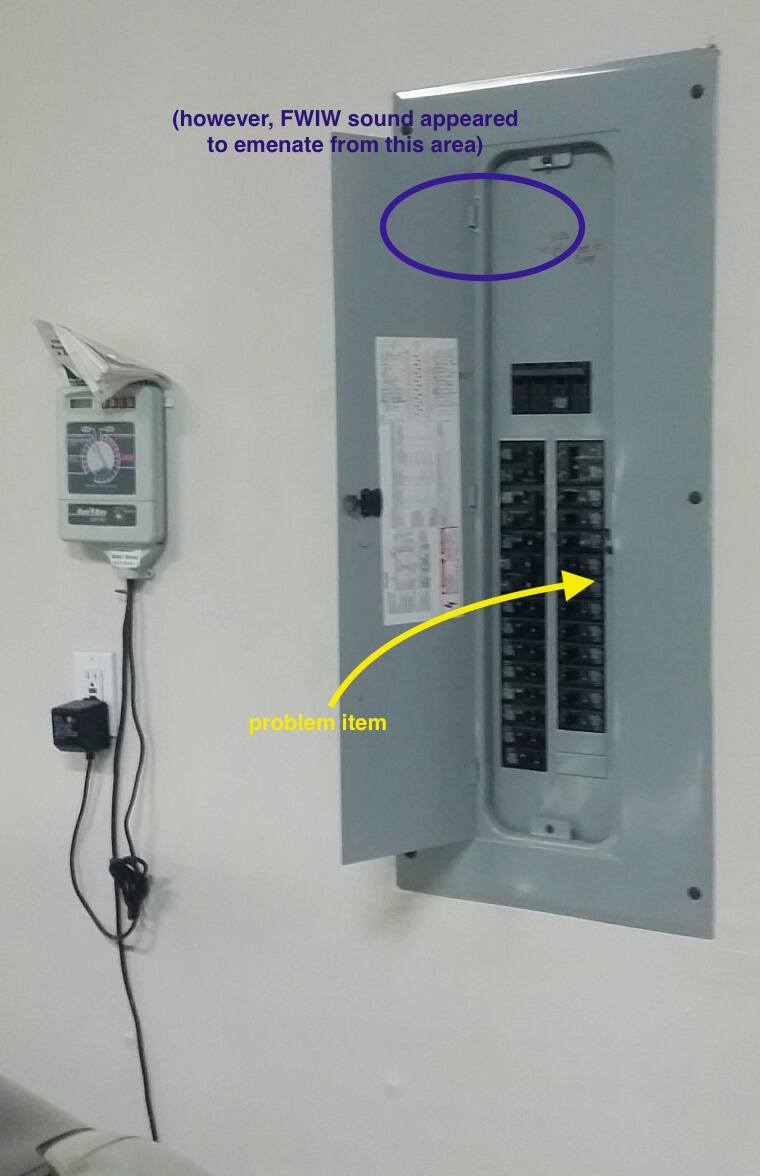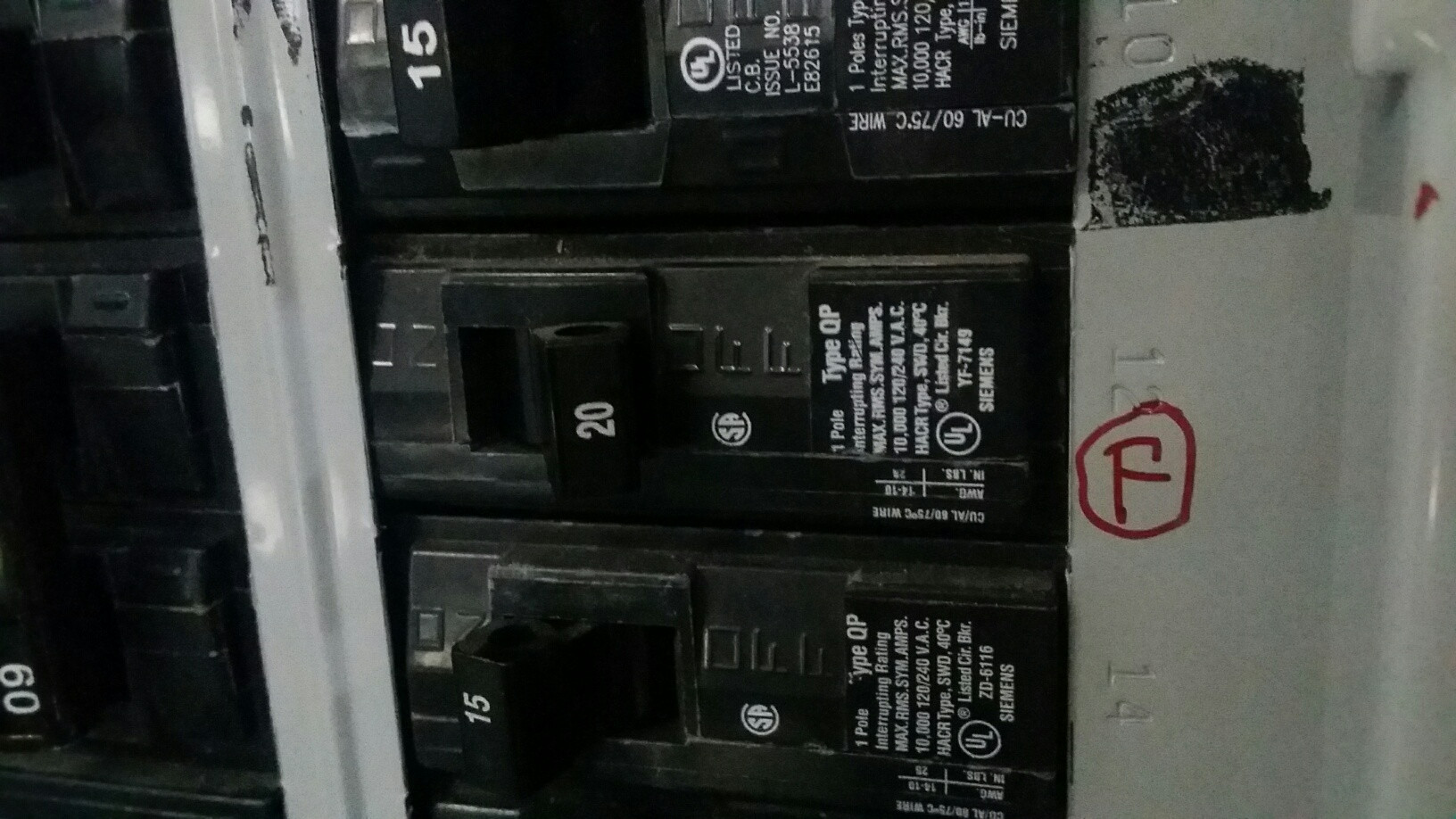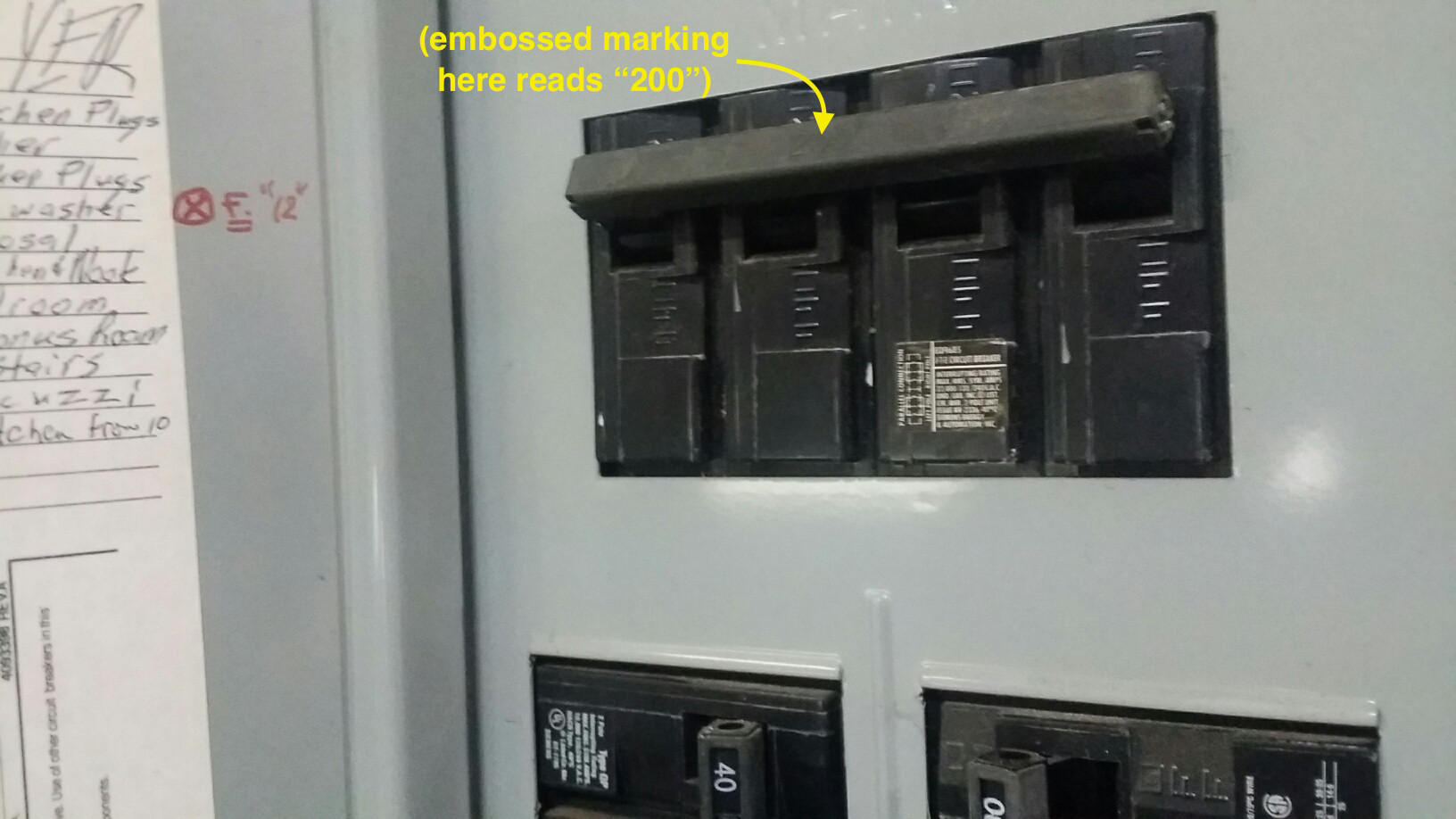I noticed the light in the fridge was flickering, same with the coffee machine LEDs etc on the same plug circuit.
Fortunately, I noticed that in the garage...this house built about 18 yrs ago; this in the US, South...
... there was a buzzing / crackling sound coming from that powerboard.
It would buzz or crackle every 3-4 seconds for a second. You could hear it quite clearly if close (but not from say a few feet way). I carefully checked for burning smell and could not smell any smells at all.
When I turned "off" the fuse (turns out it was "#12") the crackling completely stopped.
Here is the type of fuse (apologies if fuse/powerboard are not the correct terms).
Perhaps a "type QP" ?
Now, I've simply left that fuse turned off (plugged the fridge/etc in different plugs). (1) there is absolutely no buzzing now from anywhere on the powerboard. (2) as far as I can tell, every other outlet in the house is working perfectly - no flickering lights/devices.
Note however that, perhaps disturbingly, the buzzing sound I heard seemed to come from the area indicated (up top left) rather than from "near the fuse thing" I turned off - of course it's hard to tell exactly, and it may mean nothing.
What I'm wondering,
1) Is it likely that the only problem is the "QP" fuse unit thing? Or is it more likely some greater problem, perhaps in the powerboard generally or even the house wiring?
2) That type of fuse unit ("QP") - can I replace it, or is it a professional job? I note that the central strip of gray metal suggests one would have to pull off the whole powerboard plate / fascia? to get at it.
3) What is the scale of cost of those "QP" (?) units (ie, are they like "two dollars" or like "a thousand dollars")
Just FTR if it helps...
... that appears to be the rating of the house (it's a big house, we just rent it. I feel bad for the owner when they have to fix stuff!)
Again fundamentally, are these user-replaceable; at any rate is it likely a bigger problem which needs to be checked by a pro?
(Previous domestic powerboards like that which I have seen: the fuse-units just pop in and out for replacement - of course, I could be completely mistaken, and the situation varies in Europe, USA etc.) Cheers, experts!



